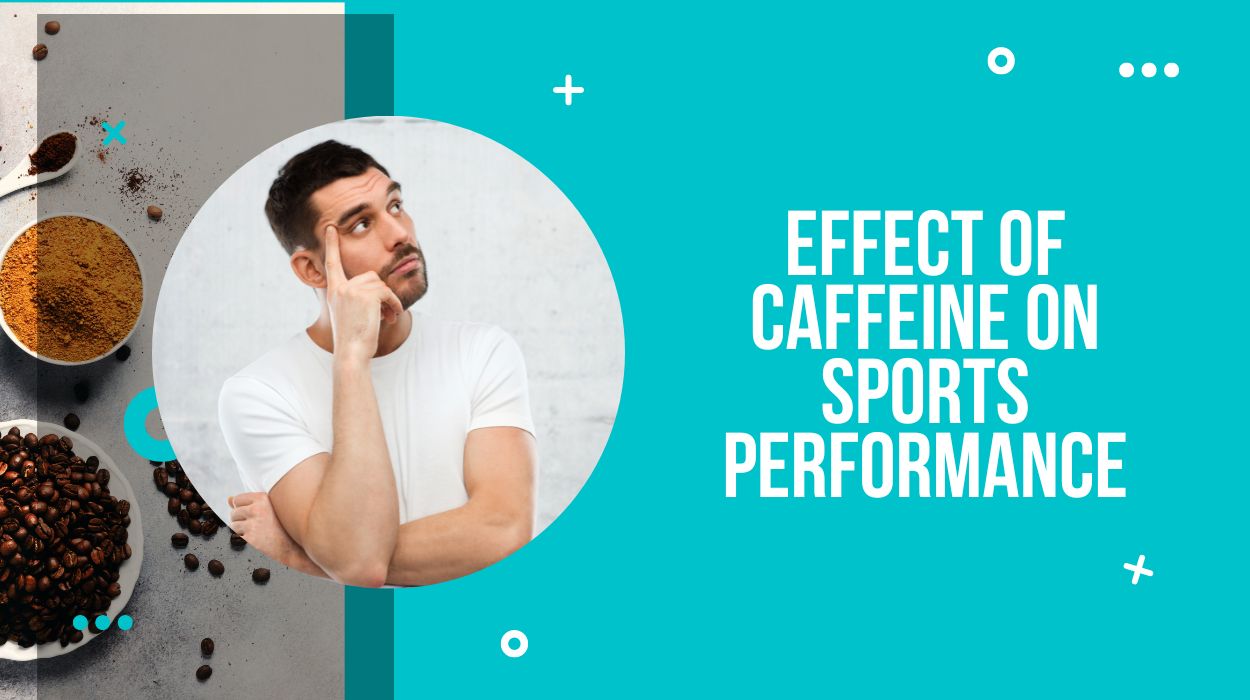Do you need a cup of coffee every morning before you go to work? Then you belong to the vast majority of Dutch people who drink coffee every day to get more energy. The boosting effect is caffeine. This substance is also often incorporated into pre-workout boosters to ensure a sharp increase in energy. But does caffeine or caffeine actually improve performance? In this article, I will go deeper into the effect of caffeine on sports performance. What effect does caffeine have in the body, and is it safe to use as a fitness supplement?
What is caffeine?

Caffeine or coffee, also known as thein, machine/matin and guaranine, is an alkaloid found in coffee beans, tea, mate, guaraná and cocoa beans. It is stimulating in terms of body and mind. The bitter taste is well recognized in a cup of coffee. Therefore, black coffee is not for everyone; many people add milk and/or sugar to improve the taste. (In this blog you can read more about whether coffee is healthy).
There are, of course, many different coffees and different strengths. For example, there is often about 70 mg of caffeine per 100 ml (a cup of 125 ml contains 85 mg of caffeine). Espresso even contains 130 mg of caffeine per 100 ml. That’s why the cups are a lot smaller with an espresso. You get a shot of caffeine. So are you looking for a nice energy boost for exercising or working? Then a cup of espresso, set with a good espresso machine, of course, ideal!
Caffeine and sports performance
Many (strength) athletes use stimulant supplements to improve their performance. For example, you may have used a pre-workout booster or taken the First Energy Gum for a workout. The main ingredient of these types of fitness supplements is caffeine. A strong dose of this creates more energy. But how can caffeine improve performance? First, this increases the transport of intercellular calcium. Also, caffeine increases fat burning, and finally, caffeine reduces fatigue. Caffeine is very similar to the neurotransmitter adenosine. Adenosine binds to its own receptor to trigger further processes. Caffeine does not stimulate the adenosine receptor but blocks it for adenosine. In the brain, adenosine causes delayed brain activity. This effect is now being negated, with the result that you experience less fatigue.
Strength & endurance
Several studies have shown that drinking coffee or using caffeine pills positively affects strength and endurance. More strength can be explained by the fact that you can train at a higher intensity with less pain or pressure [3]. To improve endurance performance and endurance, you mustn’t drink a lot of coffee daily or use pre-workout supplements. This way, your body continues to experience the stimulating effect.
Caffeine benefits
In the scientific world, there is a consensus that caffeine contributes to better sports performance. A lot of research has been done on the effects of caffeine on the body. Below is a selection of the results.
- Promotes mental alertness
- Reduces fatigue during difficult and exhausting activities.
- Caffeine promotes thermogenesis (heat generation from digesting nutrition) and thus ensures a higher calorie burn.
- Increased glycogen absorption (fuel for muscles), which allows your muscles to provide greater power output.
- Suppression of hunger and the tendency to eat.
- Moderate caffeine use over a longer period of time provides better cognitive functions, especially in women and the elderly.
- Increased glycogen storage in the muscles after strenuous training. More than just taking carbohydrates. Glycogen is important as fuel for the muscles to function. Allowing muscles to perform better and recover.
Caffeine side effects

The use of caffeine pills or pre-workout boosters with creatine as a stimulant is safe. Up to a daily dose of 600 mg caffeine is safe, though caffeine’s sensitivity is different per person. One notices more of the effects of coffee than the other. Personally, I am reasonably sensitive to caffeine (or other substances such as taurine). I never drink coffee, and therefore my body often reacts strongly to the dose of caffeine in a pre-workout. However, it is not smart to drink too much coffee or take extreme dosages pre-workout until you do. This can negatively affect your sporting performance. A high dose can lead to headaches, dizziness and nausea.
Espresso contains about 75 mg of caffeine, so based on this, you can roughly calculate what effect a pre-workout supplement with a certain amount of caffeine has on your body. My advice is to always start with the lowest dosage, and then build it up quietly.
Dehydration?
Caffeine consumption can lead to dehydration, but only when you exercise in hot conditions and use caffeine pills. When you drink coffee before your workout, you also replied your moisture level (water in coffee). Are you taking pills? Then it is wise to drink some extra water during training. This way, you keep your moisture balance on the arrow and keep the benefit of caffeine on your sports performance.


